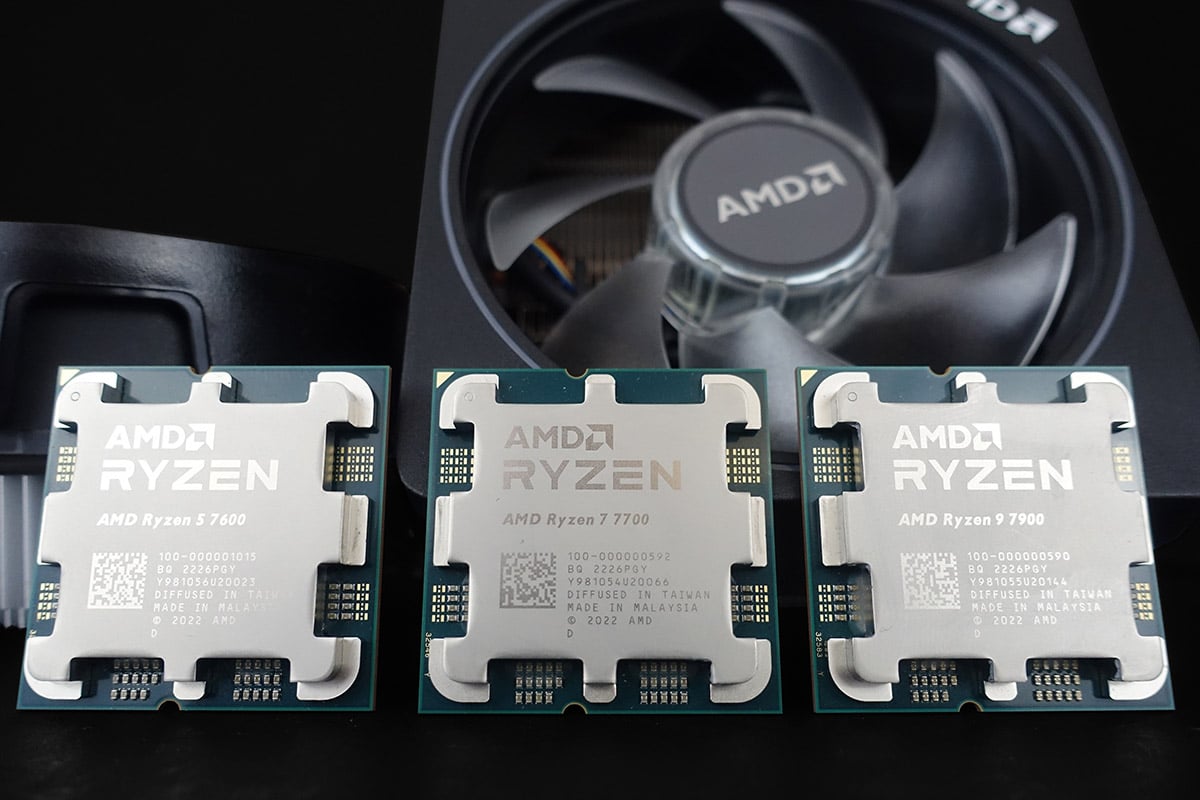Hi there!
I recently built myself a PC with a Ryzen 9 7900 in it.
After running some benchmarks, I found out I was getting very low scores compared to others (like 25% below median).
After updating the BIOS and installing chipset drivers, it reduced to about a 10~15% loss. Which is still quite a bit, and I noticed during benchmarks that the CPU was never going past 4.47 GHz on all cores. On single-core benchmark, I get up to 5.29 GHz one one core.
I tried to enable PBO in the BIOS, and now I can get up to ~5.05 GHz on all cores during benchmark, and the score significantly improved, reaching the medians I've seen online.
Question is: are you actually supposed to enable PBO in order to get advertised boost frequencies? Enabling it means that my CPU is now running a lot hotter and drawing a lot more power, which is a problem for me as I value silence a lot.
I'll disable PBO anyway as without it my PC run without any amount of noise even in benchmarks, which is really nice. With PBO temps stay fine (never exceeding 72°C) but I can clearly hear the fan.
Anyway, I mainly want to make sure if this behaviour is normal?
Oh and by the way, since the BIOS update (on a MSI A620M-E) my 5600 MHz RAM cannot run above 5200 MHz anymore, otherwise the PC won't start and the EZ Debug LED indicates that's something wrong the RAM and the CPU. No additional infos. 4800 MHz works fine, 5200 too, 5400 and 5600 make it crash (and the only solution is then to connect the two dedicated "BAT" pins on the motherboard), A-XMP also makes it crash. Where before it ran absolutely fine and I correctly had 5600 MHz shown in Windows' task manager. Don't know if it's related.
I rolled back to the previous BIOS version and everything's fine, I can re-enable A-XMP or set the frequency to 5600 MHz and it works fine.
Thanks in advance for your help
I recently built myself a PC with a Ryzen 9 7900 in it.
After running some benchmarks, I found out I was getting very low scores compared to others (like 25% below median).
After updating the BIOS and installing chipset drivers, it reduced to about a 10~15% loss. Which is still quite a bit, and I noticed during benchmarks that the CPU was never going past 4.47 GHz on all cores. On single-core benchmark, I get up to 5.29 GHz one one core.
I tried to enable PBO in the BIOS, and now I can get up to ~5.05 GHz on all cores during benchmark, and the score significantly improved, reaching the medians I've seen online.
Question is: are you actually supposed to enable PBO in order to get advertised boost frequencies? Enabling it means that my CPU is now running a lot hotter and drawing a lot more power, which is a problem for me as I value silence a lot.
I'll disable PBO anyway as without it my PC run without any amount of noise even in benchmarks, which is really nice. With PBO temps stay fine (never exceeding 72°C) but I can clearly hear the fan.
Anyway, I mainly want to make sure if this behaviour is normal?
Oh and by the way, since the BIOS update (on a MSI A620M-E) my 5600 MHz RAM cannot run above 5200 MHz anymore, otherwise the PC won't start and the EZ Debug LED indicates that's something wrong the RAM and the CPU. No additional infos. 4800 MHz works fine, 5200 too, 5400 and 5600 make it crash (and the only solution is then to connect the two dedicated "BAT" pins on the motherboard), A-XMP also makes it crash. Where before it ran absolutely fine and I correctly had 5600 MHz shown in Windows' task manager. Don't know if it's related.
I rolled back to the previous BIOS version and everything's fine, I can re-enable A-XMP or set the frequency to 5600 MHz and it works fine.
Thanks in advance for your help




